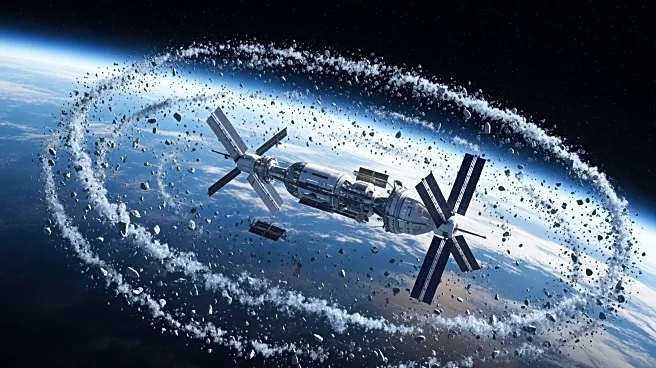What's Happening?
The number of satellites and space debris in low Earth orbit has surged dramatically, with over 24,000 objects now orbiting the planet. This represents a 76% increase since 2019, raising concerns about potential collisions and the safety of space operations.
A recent incident involved a large piece of space debris, likely from a Chinese rocket, crashing into the Australian desert. The Australian Space Agency is investigating the debris, which is suspected to be a propellant tank or pressure vessel from a space launch vehicle.
Why It's Important?
The exponential increase in space debris poses significant risks to both space missions and terrestrial safety. Collisions between orbiting objects could create more debris, leading to a cascade effect known as the Kessler Syndrome, which could render certain orbits unusable. This situation threatens the sustainability of space exploration and the safety of satellites that provide critical services such as communication, navigation, and weather monitoring. The incident in Australia highlights the potential dangers of uncontrolled re-entries of space debris.
What's Next?
Efforts to mitigate space debris are likely to intensify, with international cooperation needed to develop and enforce guidelines for debris management. This may include designing satellites with deorbiting capabilities and improving tracking systems to predict and avoid collisions. The Australian Space Agency's investigation into the recent debris incident may lead to diplomatic discussions with China and other spacefaring nations to address the issue of space debris more effectively.
Beyond the Headlines
The growing problem of space debris raises ethical and legal questions about the responsibility of spacefaring nations to prevent and manage debris. It also underscores the need for global governance in space activities to ensure the long-term sustainability of space exploration. As space becomes more accessible, the challenge will be to balance technological advancement with environmental stewardship in the final frontier.
















